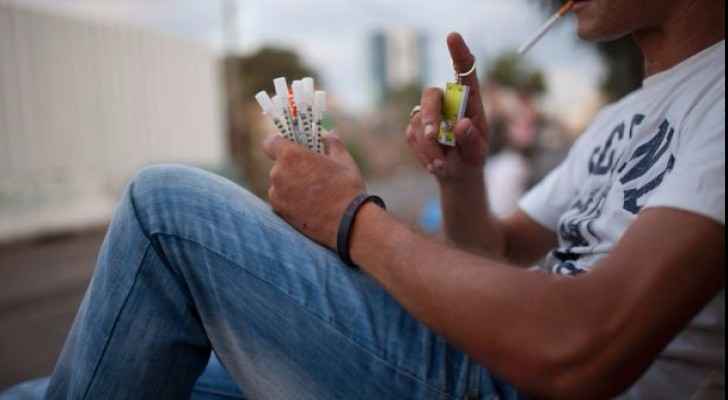Since March 2018, following weeks of protests against Israel’s siege and displacement of Palestinians began. According to the World Health Organisation, the Israeli military has killed more than 250 Gazans and injured over 26,000.
The colossal damage to these victims has created another issue for the Palestinian authorities, the issue of substance abuse and addiction to painkillers.
Tightened border security, quashing any hope for development, restricting the flow of aid and necessities; where food and water are commodities but drugs are available and in rich supply.
Drugs on the black market are expensive and make people poorer and sicker, and generally, are taking over the lives of the vulnerable. The majority of those injured in the protests are young men and women fighting for the change. The next generation of Muslims who Israel views as tomorrows threats.
In a country where any kind of resource is scarce Israel and Egypt have sealed Gaza from the outside world.
The blockade has crushed the local economy, driving unemployment up to 44 per cent and pushing 53 per cent of residents below the poverty line. Crumbling infrastructure has been battered by the Israeli military, which has waged three wars with Hamas in just over a decade.
All these factors combined have created the perfect melting pot for drug abuse.
Aspirin is scarce, tramadol, a synthetic opioid painkiller has become the drug of choice in Gaza. As Israel pumps the drug through, disguised as aid to weaken the enemy. Simialr to the way authorities pumped drugs into the black communities in the USA. You don’t need to deliver it by hand, you simply have to create the opportunity. Fueled by cut-rate cheap Indian exports, bypassing legislation the young entrepreneur finds it difficult to resist the opportunity to make a quick buck.
It is an epidemic that threatens to render a generation of Gazans dependent upon prescription pills that can be as powerful as morphine. Living in what they describe as an open-air prison, Gazans have seen their fortunes decline, with little hope of a reversal. This desperation is fuelling drug abuse.
The UN has warned that Gaza is fast “de-developing” and will be uninhabitable by 2020 a jarring statistic for its resilient residents.
Under the broad-ranging and comprehensive Israeli blockade of the Gaza strip, which has been in place since 2007, Gazan society has come to rely heavily on a vast network of cross-border tunnels, some as much as 18 meters underground, which have become crucial supply routes for Palestinians who are cut off from the outside world.
Tramadol is one of the most commonly abused drugs, it impacts spermatogenesis and disturbs reproductive hormones and further incentives the promotion in the region for the Israeli army. Being able to stem the population growth is an added advantage to an adverse neighbour.
Tens of thousands of Palestinians in Gaza have been taking the drug as a way to escape the pressures of daily life in the besieged coastal enclave.
Egyptian forces have attempted to close the Rafah tunnels, but that has driven Tramadol’s price up. The opportunity to smuggle through the channels and profit to the sources is providing an unlimited opportunity to the opportunist in the country.
Backed by unlimited and cheap supply via the Israeli black market, the opioid tramadol has become the drug of choice for the vulnerable Palestinians, depressed desolate and dependent.
While Palestine’s Anti-Drug Task Force has confiscated millions of pills over the past years, substance abuse doesn’t appear to be subsiding.
In recent years, Narcotics, including cannabis, have flooded Gaza in unprecedented quantities, whilst Israel turns a blind eye to the influx of drugs into the region, the flow of bread and rice is monitored and controlled.
Whatever the tactics and results, the demand for drugs continues and as with any illicit drug trade anywhere in the world, as long as there is demand there will be dealers willing to take whatever risks are necessary to meet that demand and reap its immense profits.
[simple-payment id=”7912″]






[…] In a scathing response, Prime Minister Benjamin Netanyahu said Israel rejected the report “out of hand” and accused the UN Human Rights Council of hypocrisy and lies fueled by “an obsessive hatred for Israel”. […]
[…] In a scathing response, Prime Minister Benjamin Netanyahu said Israel rejected the report “out of hand” and accused the UN Human Rights Council of hypocrisy and lies fueled by “an obsessive hatred for Israel”. […]
[…] The drug epidemic in Palestine fuelled by Israel and India […]
[…] The drug epidemic in Palestine fuelled by Israel and India […]